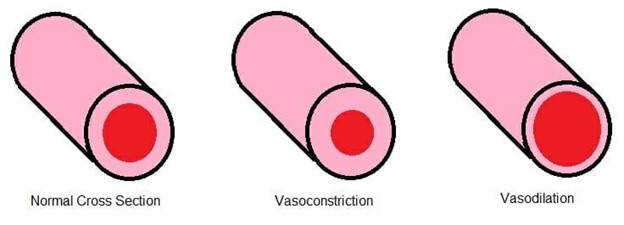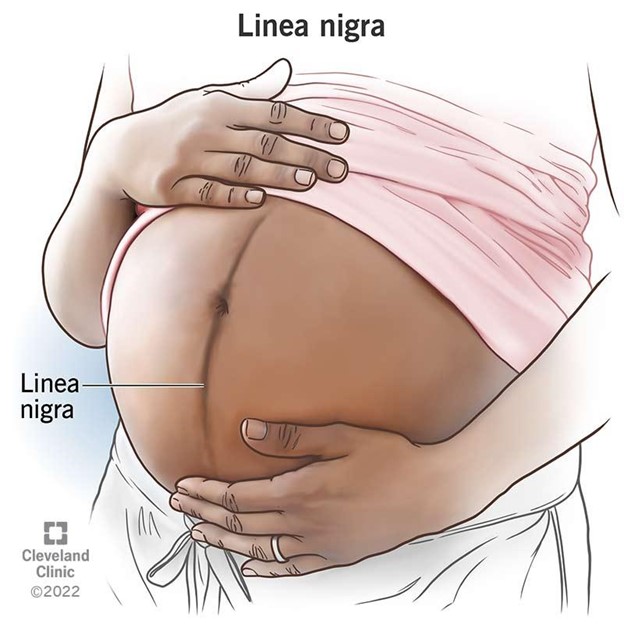A pregnant client in her second trimester has a hemoglobin level of 11 g/dL. The nurse interprets this as indicating
Hemodilution of pregnancy
A multiple gestation pregnancy
Greater-than-expected weight gain
Iron-deficiency anemia
The Correct Answer is A
Choice A: Hemodilution of pregnancy is a normal physiological phenomenon that occurs when the plasma volume increases more than the red blood cell mass, resulting in a lower hemoglobin concentration. The normal hemoglobin range for pregnant women in the second trimester is 10.5 to 14 g/dL.
Choice B: A multiple gestation pregnancy may cause a higher hemoglobin level due to increased erythropoietin production by the placenta. The normal hemoglobin range for pregnant women with twins in the second trimester is 12 to 16 g/dL.
Choice C: Greater-than-expected weight gain is not related to hemoglobin level. Weight gain during pregnancy depends on various factors such as pre-pregnancy weight, nutrition, activity level, and fetal growth.
Choice D: Iron-deficiency anemia is a condition where the hemoglobin level is below the normal range due to inadequate iron intake or absorption, blood loss, or increased iron demand. The signs and symptoms of iron-deficiency anemia include fatigue, pallor, weakness, shortness of breath, and pica.
Nursing Test Bank
Naxlex Comprehensive Predictor Exams
Related Questions
Correct Answer is B
Explanation
Choice A Reason: This is incorrect because marijuana is a psychoactive substance that affects the central nervous system and can cause euphoria, relaxation, altered perception, and impaired memory. It does not cause tachycardia, hypertension, or vasoconstriction in pregnant women or their fetuses.
Choice B Reason: This is correct because cocaine is a stimulant substance that affects the cardiovascular system and can cause tachycardia, hypertension, vasoconstriction, arrhythmias, and ischemia in pregnant women or their fetuses. It can also increase the risk of placental abruption, preterm labor, intrauterine growth restriction, and fetal death.
Choice C Reason: This is incorrect because nicotine is a stimulant substance that affects the respiratory system and can cause bronchodilation, increased heart rate, and increased blood pressure in pregnant women or their fetuses. However, it does not cause vasoconstriction, but rather vasodilation.
Choice D Reason: This is incorrect because caffeine is a stimulant substance that affects the central nervous system and can cause alertness, insomnia, anxiety, and increased urine output in pregnant women or their fetuses. It does not cause tachycardia, hypertension, or vasoconstriction in moderate doses.
Choice E Reason: This is incorrect because heroin is an opioid substance that affects the central nervous system and can cause euphoria, sedation, analgesia, and respiratory depression in pregnant women or their fetuses. It does not cause tachycardia, hypertension, or vasoconstriction.

Correct Answer is B
Explanation
Choice A: Striae gravidarum are stretch marks that appear on the abdomen, breasts, or thighs during pregnancy. They are caused by the tearing of the connective tissue in the dermis due to rapid growth or weight gain.
Choice B: Linea nigra is a dark vertical line that runs from the umbilicus to the pubic area. It is caused by increased melanin production due to hormonal changes during pregnancy. This is the correct choice because it matches the description in the question.
Choice C: Vascular spiders are dilated blood vessels that appear on the skin as red or purple spider-like lesions. They are caused by increased estrogen levels and blood volume during pregnancy. They are usually found on the face, neck, chest, or arms.
Choice D: Melasma is a condition that causes brown or gray patches on the face, especially on the forehead, cheeks, nose, or upper lip. It is caused by increased melanin production due to sun exposure and hormonal changes during pregnancy. It is also known as chloasma or the mask of pregnancy.

Whether you are a student looking to ace your exams or a practicing nurse seeking to enhance your expertise , our nursing education contents will empower you with the confidence and competence to make a difference in the lives of patients and become a respected leader in the healthcare field.
Visit Naxlex, invest in your future and unlock endless possibilities with our unparalleled nursing education contents today
Report Wrong Answer on the Current Question
Do you disagree with the answer? If yes, what is your expected answer? Explain.
Kindly be descriptive with the issue you are facing.
